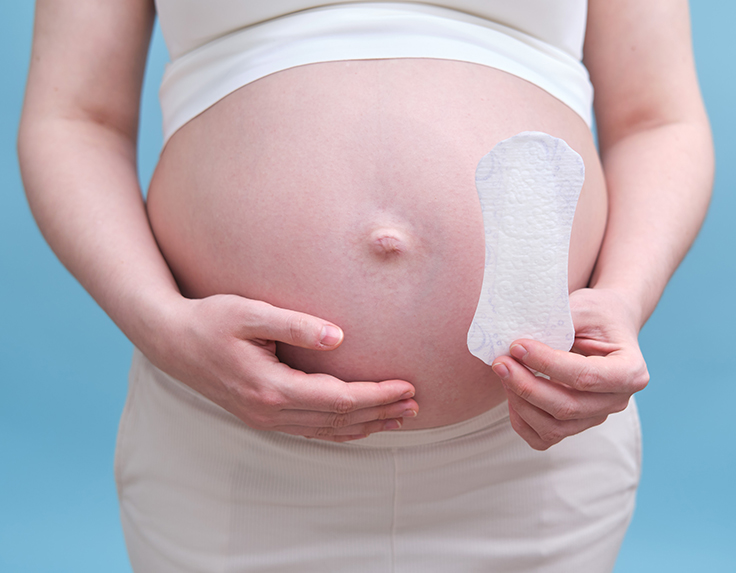Endometrium Thickness In Pregnancy: Signs And Therapy
The endometrium is the inner lining of the uterus, which changes its thickness throughout a woman’s menstrual cycle. The endometrial thickness is an important factor in the success of conception and pregnancy. During the menstrual cycle, the endometrium thickens in preparation for implantation of a fertilized egg. If fertilization does not occur, the endometrium is shed during menstruation. After menstruation, the endometrium begins to thicken again in response to hormonal changes.
The endometrial thickness is usually measured using ultrasound, which can accurately determine the thickness of the endometrium. Typically, the endometrial thickness is highest just prior to ovulation, when it can reach up to 12 mm. After ovulation, the thickness may decrease slightly. In addition to its role in the menstrual cycle, the endometrial thickness is also important during fertility treatments. In vitro fertilization (IVF) and other fertility treatments often involve the use of medications to stimulate the growth of the endometrium, in order to increase the chances of successful implantation.
Endometrial thickness in pregnancy is an important factor that can affect a woman’s ability to conceive and carry a healthy pregnancy. The endometrium is the lining of the uterus that thickens and prepares for implantation of a fertilized egg. During pregnancy, the endometrium continues to thicken and provide support for the developing fetus.
Monitoring endometrial thickness is an important part of reproductive and prenatal care. A healthcare provider may perform regular ultrasounds to measure the endometrial thickness and identify any potential issues that may affect fertility or pregnancy.
Symptoms of high endometrial thickness
High endometrial thickness, or endometrial hyperplasia, may not always cause noticeable symptoms. However, when symptoms do occur, they may include:
- Women with high endometrial thickness may experience irregular menstrual periods or longer periods than usual.
- High endometrial thickness can cause heavy bleeding during periods, which can be a sign of abnormal tissue growth.

- Women with high endometrial thickness may experience bleeding between periods, which can also be a sign of abnormal tissue growth.
- Endometrial hyperplasia can make it difficult for women to conceive as the thickened lining of the uterus may not allow for proper implantation of the fertilized egg.
- In some cases, high endometrial thickness may cause pelvic pain or pressure, especially if the thickening is due to the presence of uterine fibroids or other abnormal tissue growth.
Causes of high endometrial thickness
Several factors can cause high endometrial thickness. The most common cause is hormonal imbalance, particularly an excess of estrogen in the body.
- Polycystic ovary syndrome (PCOS): PCOS is a common hormonal disorder that can cause high endometrial thickness. Women with PCOS produce too much estrogen and too little progesterone, which can cause the lining of the uterus to thicken.
- Obesity: Obesity can cause hormonal imbalances in the body, leading to an excess of estrogen production, which can cause high endometrial thickness.
- Thyroid disorders: Thyroid disorders can affect the balance of hormones in the body, leading to high endometrial thickness.
- Certain medications: Certain medications, such as tamoxifen, which is used to treat breast cancer, can cause high endometrial thickness as a side effect.
- Menopause: As women approach menopause, there is a decrease in progesterone production and an increase in estrogen production, which can cause high endometrial thickness.
- Family history: A family history of endometrial hyperplasia or cancer can increase the risk of developing high endometrial thickness.
Other factors that can contribute to high endometrial thickness include stress, diabetes, and other medical conditions that affect hormone levels. If you are experiencing symptoms of high endometrial thickness, it is important to talk to your healthcare provider to determine the underlying cause of the condition and develop a treatment plan.
What is endometrial thickness in early pregnancy?
Endometrial thickness in early pregnancy can vary, but it is generally thicker than in non-pregnant women. During early pregnancy, the endometrium undergoes changes in preparation for implantation and support of the developing embryo.
In the first trimester of pregnancy, the endometrial thickness is typically between 8-13mm. However, it is important to note that endometrial thickness can vary depending on factors such as the individual woman’s anatomy, age, and overall health.
If the endometrial thickness is significantly lower or higher than expected, it may indicate an underlying issue. For example, a thin endometrial lining may make it difficult for the fertilized egg to implant, while a thickened endometrial lining may be a sign of an underlying condition such as endometrial hyperplasia.
During early pregnancy, your healthcare provider may monitor your endometrial thickness through ultrasound to ensure that it is developing appropriately. If there are any concerns about the thickness or if there are any symptoms of abnormal tissue growth or miscarriage, further evaluation and treatment may be necessary.
Treatment for abnormal endometrium
If the abnormal thickness is due to hormonal imbalances, medications such as birth control pills, hormone replacement therapy or progesterone supplements may be recommended to regulate the menstrual cycle and promote a normal endometrial thickness.
If there are abnormal cells or tissue growth, further evaluation such as a biopsy may be needed to determine if there are any pre-cancerous or cancerous cells present. In some cases, surgery may be necessary to remove abnormal tissue or to remove the uterus entirely.
It is important to consult with a healthcare provider if there are any concerns about abnormal endometrial thickness or if there are any symptoms such as abnormal bleeding or pain. Regular gynecological exams and screening tests can also help to detect any abnormal tissue growth early on and allow for prompt treatment.
While we have a clear understanding of endometrium thickness, let’s have a run through at some of the frequently asked questions.
FAQs
Q: Why is endometrial thickness during pregnancy monitored?
A: Endometrial thickness during pregnancy is monitored to ensure that the lining of the uterus is developing appropriately and is providing adequate support for the developing fetus. Any abnormalities in endometrial thickness can indicate an underlying issue that may require further evaluation and treatment.
Q: What happens if endometrium is thick during pregnancy?
A: A thick endometrium during pregnancy may be a sign of an underlying condition such as endometrial hyperplasia or cancer, and may require further evaluation and treatment. In some cases, a thick endometrium may also increase the risk of complications during pregnancy such as preterm labor or miscarriage.
Q: How can I reduce my endometrial thickness during pregnancy?
A: Endometrial thickness during pregnancy is typically regulated by hormonal changes in the body. If the endometrial thickness is abnormally thick, it is important to consult with a healthcare provider to determine the underlying cause and appropriate treatment. In some cases, medications may be prescribed to regulate the menstrual cycle and promote a normal endometrial thickness. It is important to avoid self-treatment or taking any medication without consulting with a healthcare provider.










































Leave a comment